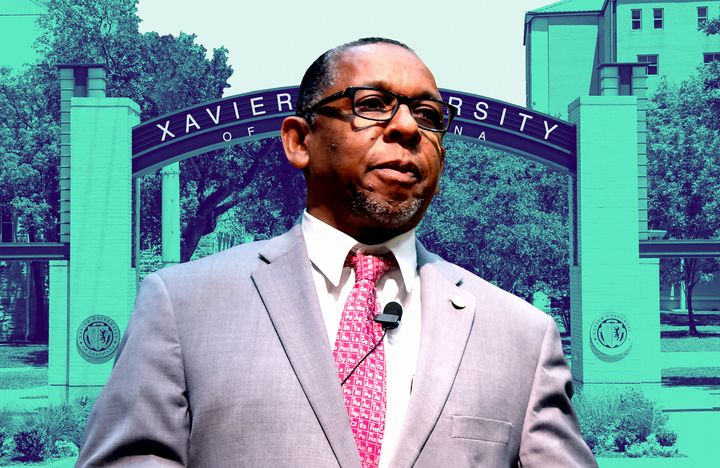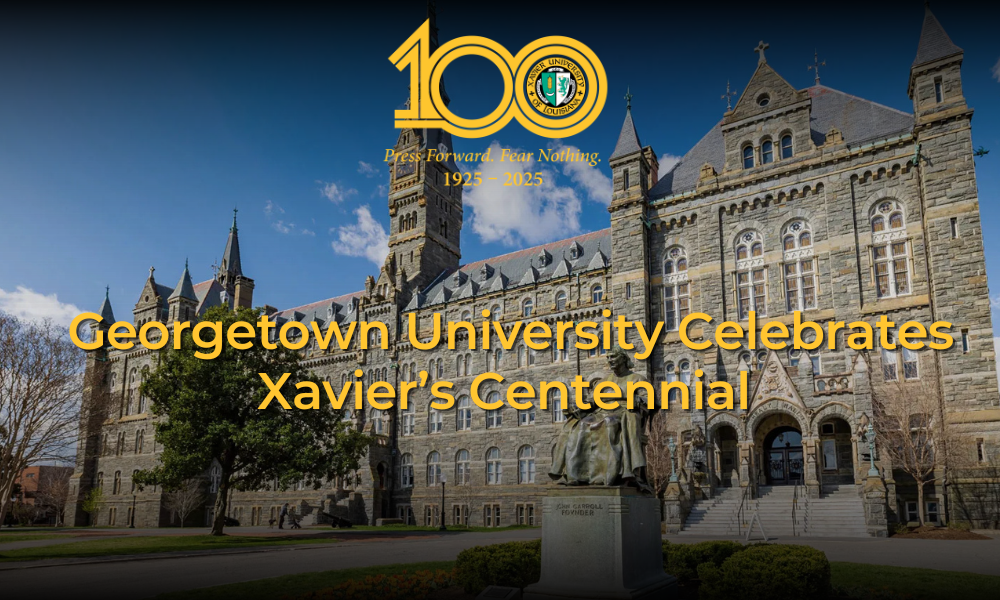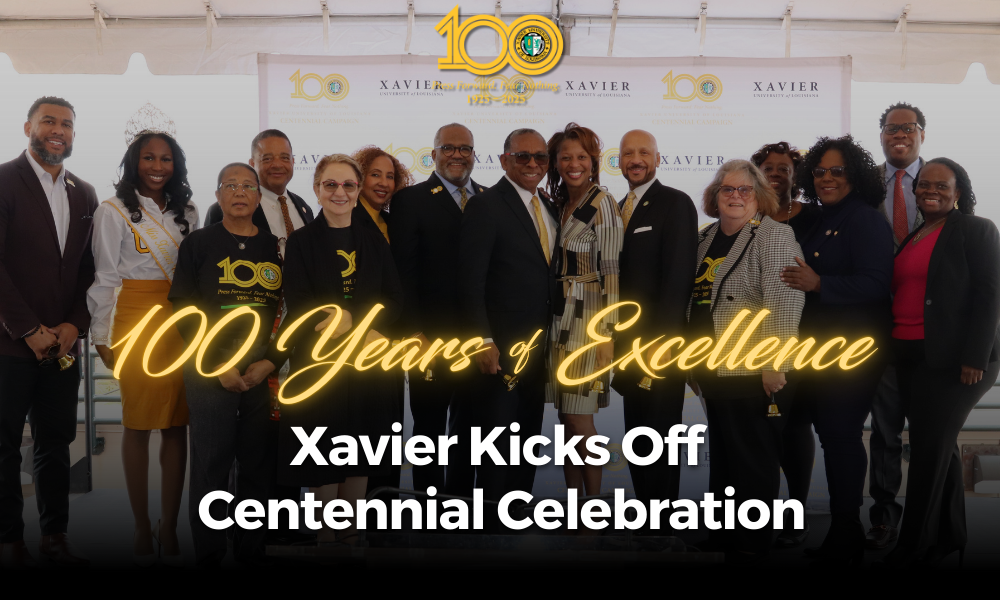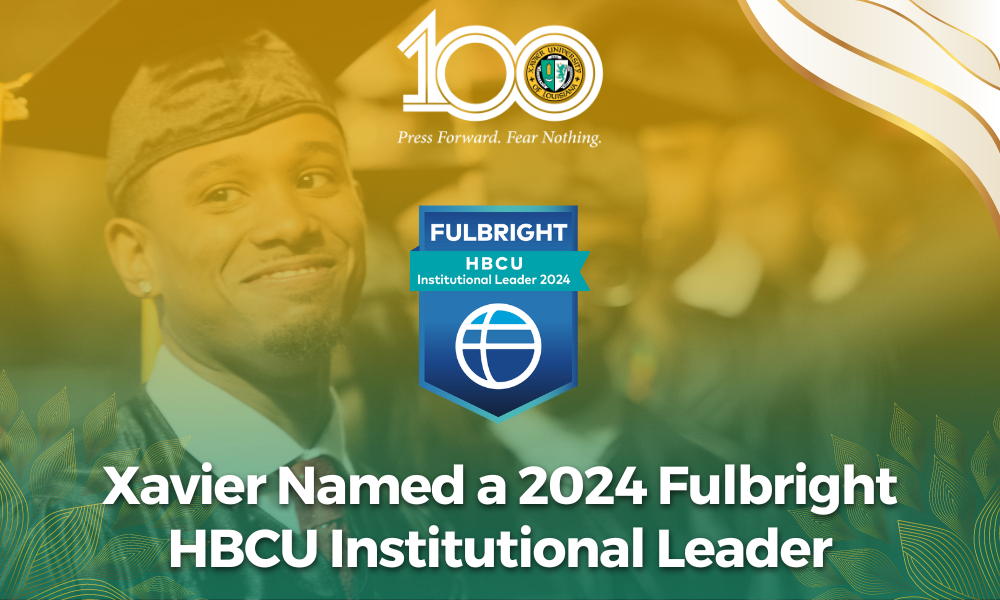This University President Knows Why America Can’t Afford to Neglect HBCUs

Historically Black colleges and universities (HBCUs) have long served the Black community, providing access to higher education at times other schools would not. They also play a distinct and vital role throughout American society, cultivating diverse talent while driving innovation and economic growth. And yet, they don’t receive the same support as other universities and colleges around the country.
One in five Black American college graduates received their bachelor’s degree from an HBCU, despite the institutions operating with endowments about 70% lower than non-HBCU schools. And while HBCUs have proven their resilience — surmounting segregation barriers during Jim Crow, decades of inadequate funding and accreditation bureaucracy — they are now presented with even more new challenges that put their futures at risk.
This year’s pandemic, ensuing economic downturn and social unrest around systemic racism have converged with a disproportionate impact on the Black community. These forces affect faculty, staff, students and alumni who support the schools. Without support, HBCUs risk falling behind, or worse. And without HBCU talent, corporate America risks the same.
In association with CEO Action for Diversity & Inclusion — a coalition of more than 1,000 CEOs who have pledged to take action to address the ongoing inclusion needs of their people and communities — we spoke with the president of Xavier University of Louisiana, Dr. Reynold Verret, about how HBCUs serve as an indispensable pathway for talent development and acquisition.
Xavier, despite its relatively small size, continues to send more Black graduates to complete medical school annually than any other university in the country, proof of its value as a means of social mobility for Black Americans. As a biochemist and immunologist, Dr. Verret understands the dangers of COVID-19 to people and their communities. And as the President of Xavier, he’s witnessing firsthand the disproportionate effect of COVID-19 on Black students, whether they’re incoming freshmen or new graduates about to embark on their career in corporate America.
Xavier was recently in the headlines when it received a private donation of $20 million — the largest in the University’s 95-year history. While beneficial, it far exceeds the average of donations across the HBCU system. The following conversation with Dr. Verret took place in the weeks before the news of that donation was released.
When you hear about someone wanting to invest in an HBCU, what does that mean to you?
Money is a big piece of the puzzle because power in America is expressed through wealth. Power has historically been robbed from the African American community by taking away wealth. That affects institutions like the HBCUs, legislature and other philanthropic institutions. That affects our kids in K-12 schools and fundamental institutions that are at the root of building resilient communities.
At Xavier, social mobility is about transformation of communities and peoples. It’s investing not only in individuals, but in the people they go on to touch, because that person goes on and changes his family. Take that first-generation student; suddenly a younger cousin, a younger brother, sister knows a college education is within their grasp and follows in their footsteps. It changes lives. It changes families. It changes communities. That’s the impact of investing here at Xavier or our counterparts. Socially responsible investing in endowments makes schools such as us sustainable because they support long-term impact.
Can you give us an example?
Here’s a good example: If you know Xavier, we send more African Americans to complete medical school than any school in the country. Part of that magic that happens here is that pushing and teaching students to work hard for themselves. That expectation of hard work and success is supported by campus resources to help them fill any gaps they may have arrived with at Xavier.
A major part of our work is the inclusion of a service component in our education. We’re historically Catholic, and in Catholicism, there’s an expectation that you serve other people. Whatever faith our students have, that basic tenet of service to the other is imminent at Xavier. One of the things I say to all my students is that the degree you’re getting — whether it be in biology, pharmacy, chemistry, music, history, fine arts or another field — is meaningless until you put it to the service of someone else.
Higher education is not cheap and many of the talented students that you have at HBCUs are not rich. A good friend of mine who is a doctor in physics once said, “Do you want to see what happens when you take the child of an Alabama sharecropper and send them to college? You give them an education. You get a ‘me’.” The question I ask is, how many bright kids like him have we lost due to a lack of resources or investments in that talent.
Something we’d love to discuss with you, Dr. Verret, especially in the context of investing in HBCUs, is how students who benefit from educational equity can impact society.
You hear about fierce competition among students, particularly pre-medical students. That’s counterintuitive. What we want and expect at Xavier is for all students to reach the finish line. The expectation to push each other and support each other, not to compete with each other, creates bonds of sisterhood and brotherhood in the student body. That culture is self-sustaining.
Every year, we send 500 kids out into the world. That’s our down payment. That’s our investment. That’s what we do. And the students not only do it for themselves, they go back to their families and communities to expand and multiply what they are doing. That dividend paid forward to the world is crucial to us.
How can CEOs double down on diverse talent acquisition?
Corporate leadership needs to drive interactions with our students and provide opportunities for interaction while they are still in school. We can find students with the proclivities and interests that match corporate internship programs. We can also identify students who naturally help support their education. For a student who says, “I’m working two jobs to get myself through college,” wouldn’t it be great if that kid were actually working at their discipline? Stepping back from the opportunities available once they get to school, students also need help with affordability — particularly during these challenging economic times. We know that students want to return to school, but we have to find monies that we can actually put towards their support to make financial aid available and accessible. Our goal is to not lose any of the young people who are here with us, nor the young people that should be coming to us. Corporate America’s response and support will dramatically impact the diversity pipeline, and ultimately their organization’s — and our society’s — future.
Let’s talk about the digital divide now, which is something that has been made more apparent in light of the self-quarantine and students schooling at home. How did this affect you at Xavier?
After leaving campus, there were a number of students who arrived in cities and neighborhoods with very poor connectivity. Remember, our students are from more than 40 different states, and some in semi-rural environments. We had to put some budget aside to buy hot spots, which were mailed to students. We had to provide laptops from our laptop loan program, which was eventually exhausted. We have to get more to provide for all the students who need them.
The other piece of digital enablement is the education of students. Some students — and some of our faculty as well — did not have the facility of taking or teaching courses online. We had to develop an intensive program with the academic support office to do one-on-one coaching with students who needed it, as well as coach professors who wanted to improve how they conducted their classes online. Xavier faculty were uncompromising on the quality of education and the rigor provided remotely matching the face to face experience. Thus, they challenged themselves as much as their students.
In your experience, have you seen a difference in investment toward HBCUs, compared to other institutions?
The fact that we see greater mobility and mortality in the African American population during the current crises means that there are major emotional pieces to current affairs affecting our student community, faculty and staff, because we are experiencing layers of grief upon grief. If we invest less into the Black community, that means the struggles in their communities are less valued and less supported. I refer to that psychopathology of the American mind as “the minimization of Black life.”
The disparity in how we value Black lives and Black students, in comparison to other lives and students, shows itself in philanthropy. Often companies follow the philanthropic model to donate a million dollars to an elite — and typically white — institution, but only donate $20,000 to an HBCU. The company may feel good about the gesture, but it makes no sense because the need is greater at the HBCU. Right now, HBCUs need ongoing scholarship endowments and donations for digital enablement, internship and sponsorship opportunities as well as virtual recruitment efforts. The need is greater here, and the impact is greater here.
Why are HBCUs and their communities so undervalued?
The minimizing of Black lives is the real problem. That’s a mindset that goes back 300, 400 years. It’s automatic for far too many, but it’s not rational. This is why I’m talking about the role of HBCUs; we are a repository experience of slaves. HBCUs are the repository of the truth that needs to be told for the sake of the country. We have a lot to teach the American people. Part of that teaching has to do with telling the truth to ourselves. Part of the problem that we have is that, as American people, we’ve lied to ourselves and have become comfortable with the lying.
The only cure for the lie is telling the truth. And we can help corporate leadership participate in that advocacy. Our message is one of equity and about equality for Americans as a country. Corporate America should be engaging HBCUs to make sure there’s equitable education because educational equity is equity.



